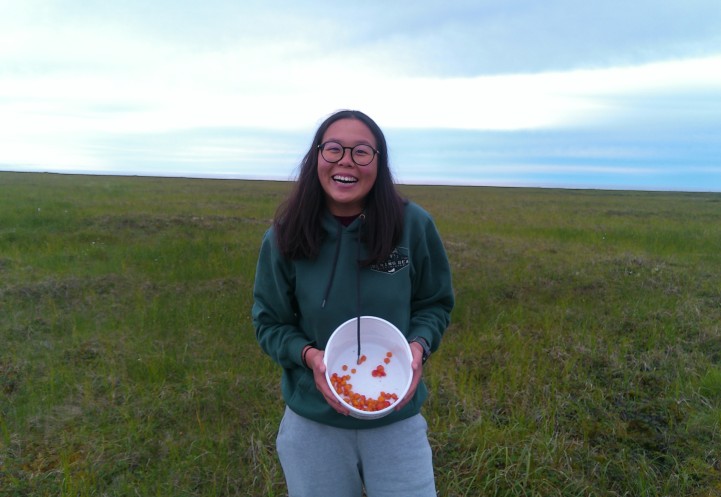Featured programs
Stories
Field Note
This summer Ann Jie Teo ’27, an international student from Ipoh, Malaysia, studying nutritional sciences, traveled to Nome, Alaska, to intern with Norton Sound Health Corp. Here, she talks about her experience in the Bering Strait region...
News
Americans eat more romaine than any other lettuce. But it has been plagued by recurrent foodborne-illness outbreaks.
News
Researchers have created a computer model that can help produce farms and food processing facilities control COVID-19 outbreaks, keeping workers safe and the food chain secure.
News
Metal oxide nanoparticles – commonly used as food coloring and anti-caking agents in commercial ingredients – may damage parts of the human intestine, say Cornell and Binghamton University scientists.
News
“They’re highly experienced, have managed large farms, have all sorts of skills, and most plan to spend a lifetime in agriculture,” Anu Rangarajan, director of the Cornell Small Farms Program in the College of Agriculture and Life Sciences...











